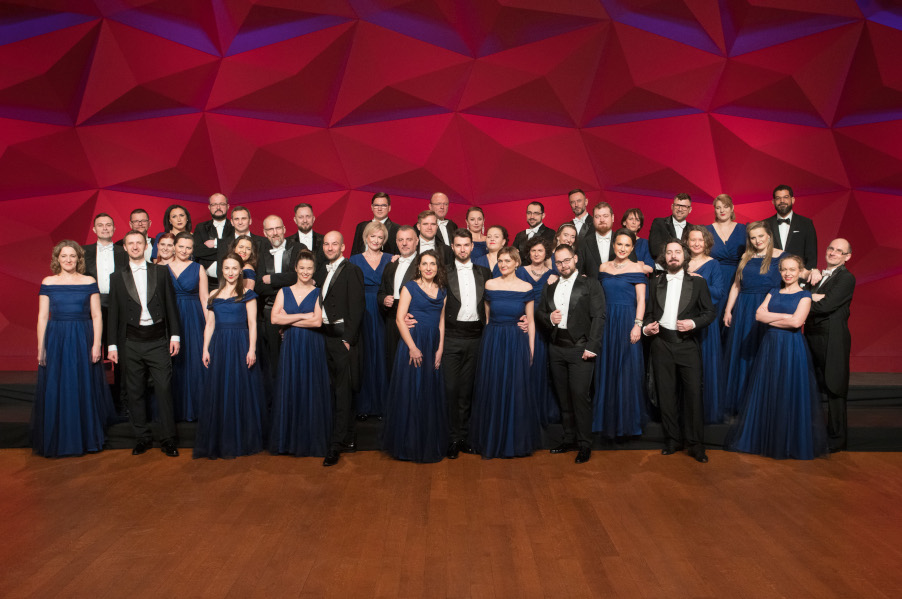Krzysztof Penderecki – one of the great masters of 20th-century music – remained faithful to sacred choral music throughout his career. The composer's work evolved over the years, which of course also found its reflection in the style of his choral pieces. In the programme of the NFM Choir concert led by its artistic director Lionel Sow, Penderecki’s works in various forms and styles will be juxtaposed with outstanding 20th-century French oeuvres. In the last century, Polish and French musical culture developed in radically different conditions. However, their meeting on stage will allow us to see, sometimes surprisingly, common elements.
The opening will be the Song of the Cherubim – one of many examples of inspiration by Orthodox church music in Penderecki’s work. Dedicated to Mstislav Rostropovich, the piece filled with fervour uses the text of the Hymn to the Holy Trinity, which accompanies the opening of the Templon in the Orthodox liturgy. We will also hear Stabat Mater, with which the then avant-garde composer surprised critics and music lovers in 1962, and which he later included in the famous St Luke’s Passion. The NFM Choir will also present music created by the artist in the last period of his life – already in the 21st century. We will listen to the contemplative hymn O gloriosa virginum from 2009, which may be a big surprise for those who only know the artist’s sonorisms. Next there will be the Agnus Dei – the fifth section of the Polish Requiem, dedicated to cardinal Stefan Wyszyński, completed in the first half of the 1980s.
The first French piece in the programme will be a setting of the Song of Songs, saturated with allegories, by Jean Yves Daniel-Lesur, less known in our country. The works of this artist, who in his youth belonged, together with Olivier Messiaen, to the group La Jeune France, will be heard in fragments. The most sensual book of the Holy Scripture will return later in the piece Nigra Sum by the contemporary artist Caroline Marçot. The programme also includes a composition by Francis Poulenc, who was fascinated by the possibilities of the human voice since the 1930s and created an arrangement of the antiphon Salve Regina in 1941. At the end, the singers will perform O sacrum convivium! – the only liturgical composition in the oeuvre of Olivier Messiaen.

